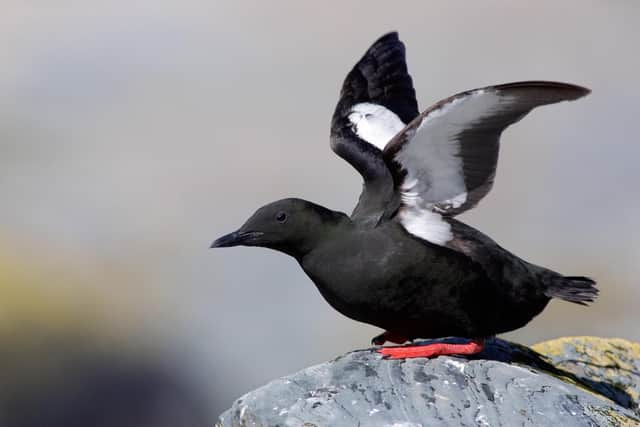Scottish seabirds: Most of species in decline over past 20 years, research shows
Seabirds Count, released in book form by wildlife publishers Lynx Edicions, is said to be the most comprehensive seabird census produced to date and provides population estimates for all 25 regularly breeding species of Britain, Ireland, the Isle of Man and the Channel Islands.
Of the 25 seabird species, 23 breed regularly in Scotland – 14 of which have declined since the year 2000.
Advertisement
Hide AdAdvertisement
Hide AdThe study says the causes of decline vary depending on the species of seabird and the region they inhabit. However, predation, adverse weather and a lack of food were cited as the main reasons for the decline.


It is thought climate change could be a contributing factor to adverse weather and a lack of food. Fisheries were also referenced as a reason for food scarcity.
Three of the species had previously increased in number, but two of these, the Great Skua and Northern Gannet, have been negatively affected by Highly Pathogenic Avian Influenza (HPAI), which was first seen in seabirds after the census was completed.
Just three species have remained stable.
Anne McCall of RSPB Scotland said: "Seabirds Count couldn't have come at a more crucial time given the increasing pressures facing our seabirds. For decades, our globally important seabird populations have been badly impacted as a result of human activities, whether through the introduction of predators to islands, the capture in fishing gear all the way through to the ever-increasing effects of climate change and the impacts this has on food availability and breeding success.
"The huge scale of seabird declines in Scotland shows these impacts starkly and it is clear there is an urgent need for effective actions that will help reverse the fortunes of seabirds.
"Increasing their resilience in the face of current and future threats is vital if we are to protect these amazing birds for future generations."
The survey took place over the course of six years (2015-21) and was led by the Joint Nature Conservation Committee (JNCC) alongside more than 20 steering group partners. The last census of its kind was published in 2004, covering 1998-2002.
Population changes in Scotland cannot be estimated for the remaining seabird species due to changes in survey methods.
Advertisement
Hide AdAdvertisement
Hide AdCommon Gull numbers have dropped by 53 per cent since the last survey in 2000, with predation and changes in land causing degradation or loss of nesting habitat and food availability.
Atlantic Puffins have declined by 21 per cent in Scotland, reflecting a wider loss in the UK, as Scotland is home to 75 per cent of the species. Globally, Atlantic Puffins are considered to be vulnerable to extinction.
The European Storm petrel, Great Skua and Northern Gannet increased between the previous census and the latest one.
Scotland, which is host to almost all of the UK and Ireland's Great Skua population, saw the species increase by 14 per cent by 2021.
Researchers believe this is due to their ability to switch prey, depending on availability.
The Northern Gannet, which also has a broad diet, increased by 40 per cent.
Daisy Burnell, senior marine ornithologist and Seabirds Count coordinator, said: "The majority of Britain and Ireland's seabirds breed in Scotland, and unfortunately for many of them the results of Seabirds Count do not paint a positive picture.
"Counting all these seabirds was no small task and was only possible through the incredible passion and dedication of volunteers and professional surveyors who collected the data.
Advertisement
Hide AdAdvertisement
Hide Ad"Because of them, we not only understand how seabirds are faring at present but have also been provided with the building blocks for seabird conservation and recovery in Scotland for at least the next decade.
"I cannot thank those involved enough for their support and participation in this project, they truly are census legends."
Comments
Want to join the conversation? Please or to comment on this article.